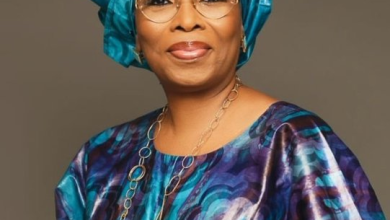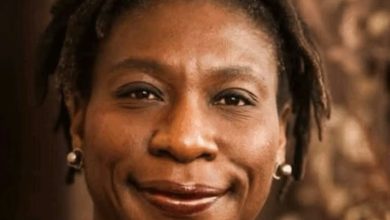A Review of Abi Darè’s The Girl With The Louding Voice

|
Getting your Trinity Audio player ready...
|
“ I do not just want a voice. I want a louding voice” — Adunni
In the rural village of Ikate, Nigeria, a girl-child suffers discrimination, bias, and use as a financial means. But this does not exist only in Ikate; it’s dominant in Nigeria, where patriarchy stands firmly. Maybe that’s why Abi Dare’s book, The Girl With The Louding Voice, is relatable and eye-opening.
At the centre of the novel is Adunni, a 14-year-old girl who only wants to be educated. However, her father, a strong representative of patriarchy, married her off to 60-year-old Morufu as his third wife. As the proclaimed head of the family with responsibilities, Adunni’s father used her as a financial means to pay for rent, radio, and other things. This act shows how the girl-child is less valued and perceived only as a means to an end. Moreover, his act is clearly evidence of child marriage.
In Morufu’s house, Adunni became a survivor of rape and domestic abuse. Her friendship with Khadijah, the second wife, exemplifies the feminist voice of ‘women supporting women.’ To avoid the villagers’ jungle justice on her due to Khadijah’s death. Adunni sought the help of Mr Kola, who helped her move to Lagos to work as a house help. His character presents predators who trafficked young girls for forced labour under the guise of helping them. Adunni’s experiences at Big Madam’s house in Lagos are a lived reality of how women struggled from childhood to adulthood.
Adunni was easy prey to paedophiles like Chief Adeoti (Big Madam’s husband). But she was rescued by Ms Tia, who reawakened her dream of being educated. Through Chief Adeoti, Abi exposes how men’s infidelity is easily forgiven and the hypocrisy behind the belief that men are the providers of the family. He is just like Adunni’s father, whose wife provides for the family while he rejoices in the patriarchal structure.
Regardless of their education and affluence, Abi exposes how women are subjected to degrading treatment, societal prejudice, and blamed for infertility even if the fault lies with the husband. This is vividly portrayed in the brutal flogging of Ms Tia by a prophet and his followers. This illustrates how women suffered maltreatment and discrimination under the guise of religious practices.
In the end, Adunni’s experience is not a story about a girl who dares to dream. It’s a reflection of the broader society where gender discrimination thrives and women are confined in a patriarchal world. Like Adunni’s dream, women should not just have a voice; but a louding voice.






